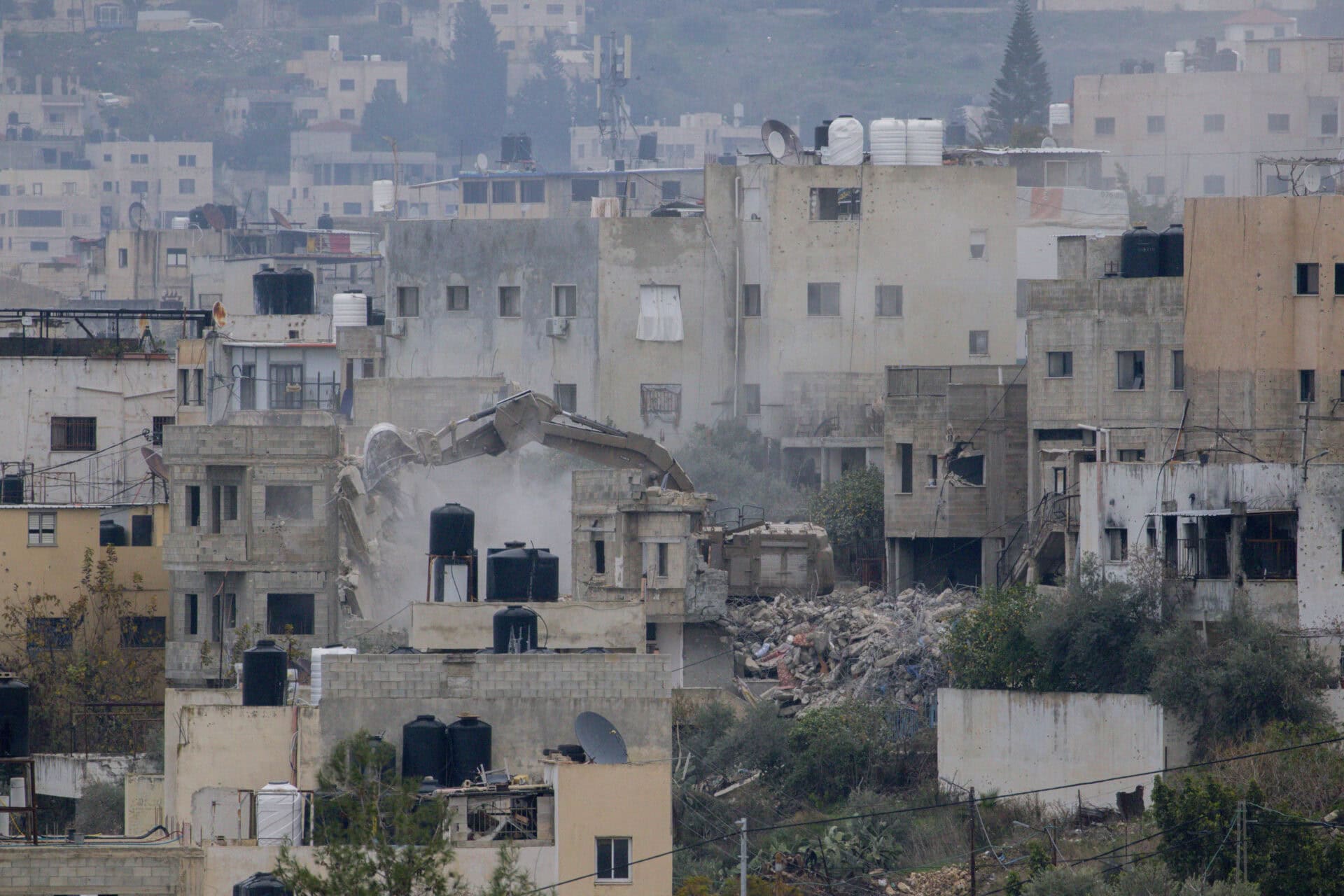Read the Special Report Here
Israeli settler terrorism, often referred to as “settler violence,” consists of actions targeting Palestinian civilians and property, often involving agricultural destruction, physical assaults, and the incitement of communal violence systematically aimed at intimidating and displacing Palestinians, with the intent to assert Israeli control over the land. Incidents of acts of terrorism committed by Israeli settlers have dramatically increased in the West Bank and East Jerusalem over the last decade, contributing to an already violent environment where peace seems farther away than ever.
The United States has long been invested in brokering a political solution to the Israeli-Palestinian conflict, favoring a two-state solution that results in increased security for Israel and self-determination and autonomy for a Palestinian state. However, the establishment and expansion of Israeli settlements in the occupied West Bank and East Jerusalem have exacerbated the conflict, bringing violent Israeli settlers into closer contact with Palestinian civilians. Instead of countering settler-perpetuated terrorism in the Occupied Palestinian Territory (OPT), the Israeli government has largely turned a blind eye to the violence, in effect sanctioning settler-perpetuated terrorism in favor of advancing Israeli goals for the territory, including potential annexation. Israeli settler terrorism must be taken seriously and effectively countered if the United States wishes to remain committed to prospects of a two-state solution to the Israeli-Palestinian conflict.
The following recommendations are offered to policymakers in government to counter Israeli settler terrorism, mitigate violence in the OPT, and restore the necessary environment for achieving a U.S.-brokered two-state solution to the Israeli-Palestinian conflict:
- The U.S. State Department should designate Israeli settlers and settler organizations that perpetuate violence against Palestinian civilians in the OPT as terrorists and Foreign Terrorist Organizations.
- The U.S. Treasury Department should, to its fullest extent, enforce sanctions against settlers, settlements, and settler organizations that promote and perpetrate terrorism against Palestinian civilians in the OPT.
- The State Department, in collaboration with the FBI, should create an interagency task force to better understand, identify, and combat the networks of Israeli settler terrorism in the OPT.
- The Treasury Department, in coordination with the State Department, should sanction Israeli government officials who support Israeli settler terrorism in the OPT and/or promote rhetoric calling for the ethnic cleansing of Palestinians in the OPT.
- The permanent U.S. representative to the U.N. Security Council, in coordination with relevant policymakers, should vote in favor of Security Council resolutions that affirm the illegality of Israeli settlements and condemn Israeli settlement expansion in the OPT.
- The U.S. Congress should condition U.S. aid packages to Israel on certifiable Israeli government action against Israeli settler terrorism in the OPT.
- The Treasury Department should enforce prosecution of U.S. organizations and individuals who finance and provide material support to Israeli settlements in the OPT that are home to Israeli settler terrorists.
Rachel Nelson is a Middle East Analyst at the New Lines Institute for Strategy and Policy. Her research has included modern Middle Eastern politics, U.S. foreign policy in the Middle East, Palestinian history and politics, migration and refugees, and international human rights law. She was a copy editor for the Harvard Kennedy School Journal of Middle East Politics and Policy during her studies. Previously, Nelson co-authored a report concerning Israeli settlement activity in the Occupied Palestinian Territory. She also worked as an intern and intern coordinator for U.S. Rep. Al Green of Texas. Nelson holds a Master of Arts in Middle Eastern Studies from Harvard University and a Bachelor of Arts in History with a minor in Judaic Studies from George Washington University.
The views expressed in this article are those of the author and not an official policy or position of New Lines Institute.






